The Proverbs of Hell 11/39: Rôti
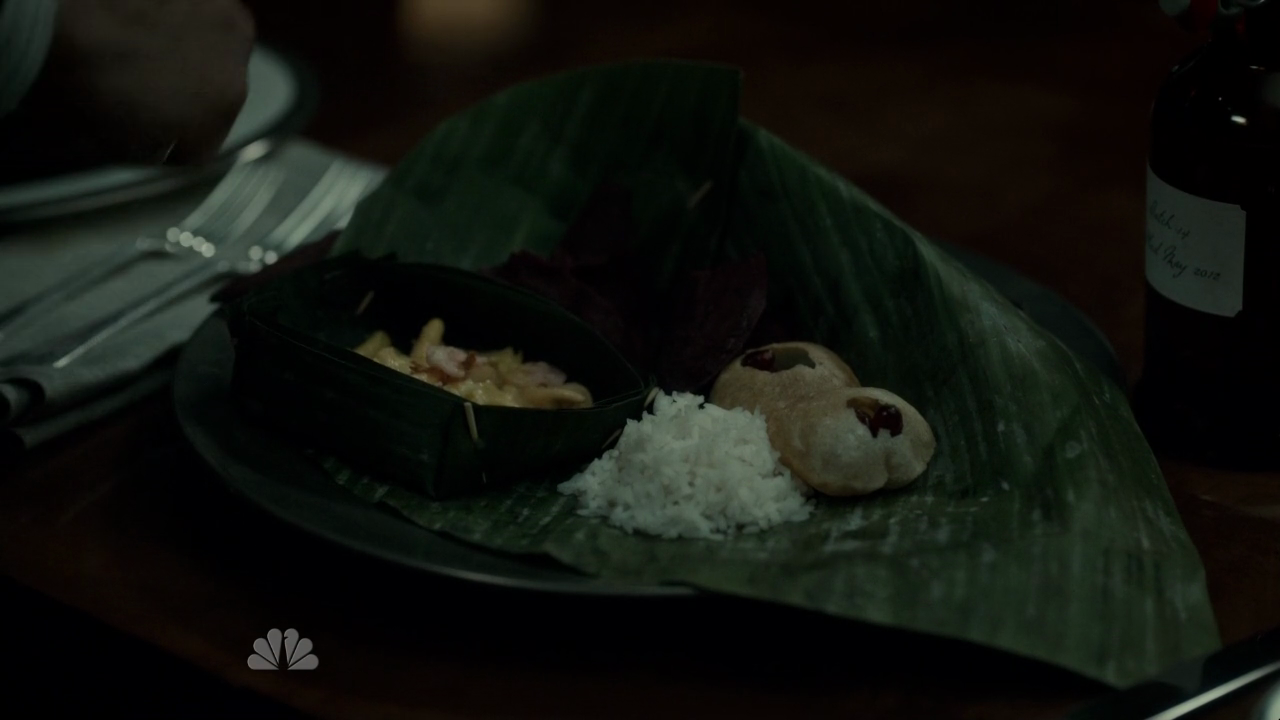 RÔTI: Roast, specifically roasted game birds, but in this case likely a straightforward case of “and now we arrive at the big centerpiece courses.”
RÔTI: Roast, specifically roasted game birds, but in this case likely a straightforward case of “and now we arrive at the big centerpiece courses.”
HANNIBAL: Someone who already doubts their own identity can be more susceptible to manipulation.Dr. Gideon is a psychopath. Psychopaths are narcissists. They rarely doubt who they are.
DR. CHILTON: Tried to appeal to his narcissism.
HANNIBAL: By convincing him he was the Chesapeake Ripper.
DR. CHILTON: If only I had been more curious: about the common mind.
HANNIBAL: I have no interest in understanding sheep. Only eating them.
One of Hannibal’s more bluntly callous secret confessions. Its unusual viciousness is probably explained by his understandable frustration at having to relate in any way, shape, or form to Chilton. Also interesting is the selection of animals for the metaphor – a departure from the show’s default choice of pigs that flags the particular disdain with which Hannibal holds Chilton.
DR. CHILTON: I thought psychic driving would have been more effective in breaking down his personality.
HANNIBAL: Psychic driving fails because its methods are too obvious. You were trying too hard, Fredrick. If force is used, the subject will only surrender temporarily.
Hannibal is, of course, obliquely discussing his own efforts to make Will Graham believe himself to be a killer. Of course, it’s not as though Hannibal isn’t using force, after all – he literally killed a man to ensure Will’s diagnosis would remain secret. Hannibal’s real point is, as ever, aesthetic – Chilton’s approach was clumsy, heavy-handed, and, most damningly, lacking in elegance.
There’s an odd structure to the episodes from “Trou Normand” through “Releves.” “Rôti” seems to want to follow up directly from “Trou Normand,” flashing back to the totem pole as a metonym for all the murders Will has been looking at, while putting Georgia Madden off to the side. Then “Releves” will pick up the Georgia Madden case, as though it would prefer to follow up on it. Was there a change in episode order? If so, other than the disjuncts, it’s a sensible one that results in Will’s psyche disintegrating further with each episode, but there’s an odd sense of cycling through several parallel stories of Will’s collapse.
Given that the script for “Buffet Froid” compares Will’s misdrawn clock to Dali, it’s fitting that this episode should go with the amusing image of a melting digital clock. Although on the whole the focus on imagery of rushing water for Will’s delusions is slightly odd given that he’s running a fever. Presumably it’s meant as an extension of the frequent motif of Will awakening drenched in sweat, but there’s a clear contrast between last week’s “set his mind on fire” and this week’s flooding. The easiest reconciliation: Will’s delusions are in fact a respite from his illness – he hallucinates water as a means of calming his body down. This is clever, but doesn’t really work.
DR. CHILTON: I can’t take responsibility for your actions, Dr. Gideon.
DR. GIDEON: Sure can. It’s why I’m suing you. Had me thinking I was someone else, now I don’t know what to think.
DR. CHILTON: Dr. Gideon, you told me you were the Chesapeake Ripper.
DR. GIDEON: No, Dr. Chilton, you told me I was the Chesapeake Ripper. And that’s what I’m going to tell everyone.
DR. CHILTON: See you in court.
It’s somewhat baffling that this profoundly awkward infodump of a scene was favored instead of making all of this clear in the Chilton/Hannibal scene at the episode’s opening. Lack of adherence to realistic criminal procedure is in no way a reasonable objection to make about Hannibal, but the contrivance of Chilton getting to confront Gideon when he’s on his way to testify against him is a weird move when the sole point of the scene is exposition.
JACK CRAWFORD: Does Abel Gideon still believe he’s the Chesapeake Ripper?
WILL GRAHAM: Abel Gideon’s having a difference of opinion regarding who he is.
A delightful account of Gideon’s mental state, but more to the point a delightful evolution of the character. “Fake Chesapeake Ripper played by Eddie Izzard” is, on the whole, already a solidly inventive concept, but this subsequent version (who ends up being far more of a factor in the show) of a killer motivated primarily by the fact that he no longer knows who he is serves as a succinct demonstration of the power of Hannibal’s approach – it’s a rich and evocative idea that would have a hard time emerging out of anything other than the hallucinatory hall of mirrors that is Hannibal.
The sudden profusion of antlers calls back to a deleted line from the “the house is like a boat at sea” scene in “Œuf,” itself moved from “Potage,” in which Will responds to Hannibal’s description of his “mentality as grotesque but useful” by describing it as “like a chair made of antlers,” this exchange itself being a rephrasing of a bit in Red Dragon. Without it, the consistent iconography of antlers becomes purely a metonym for Hannibal’s representation as a stag, which makes this scene come off as a kind of weird and directionless hallucination.
WILL GRAHAM: A thicket of antlers. All I heard was my heart dim but fast, like footsteps fleeing into silence.
As usual, the rule of thumb “if it’s a weird simile, it’s probably from Thomas Harris” applies; “footsteps fleeing into silence” comes from a description of Dolarhyde imagining killing a family.
ALANA BLOOM: What do you think will happen if Gideon finds the Ripper?
WILL GRAHAM: The Chesapeake Ripper will kill him. He took credit for his work. Ripper would consider that rude.
A rare wrong guess from Will. The big error is thinking about this in terms of rudeness – taking credit for his work is a more fundamental problem than that, bordering on existential crisis. Whatever contempt Hannibal may hold Gideon in – and it’s on the whole less than Will imagines – he is a figure whose need to be eaten by Hannibal exceeds that generated by mere rudeness.
But Will’s larger error – assuming that Hannibal will kill Gideon – emerges from a far more understandable place, namely his failure to anticipate his own involvement in these events.
The “Columbian necktie,” which is not actually physically possible, is a particularly cruel choice of imitations of Hannibal’s work. It retains the basic aesthetic, mocking the “talking cure” of psychiatry in an appropriately carnal way, But its formulaic nature, borrowing a murder method from the urban mythology of Latin American drug wars, makes it the murder tableau equivalent of the mass market knockoff.
FREDDIE LOUNDS: Aren’t you the Chesapeake Ripper?
DR. GIDEON: I admit I’m confused on that one but please don’t patronize me.
FREDDIE LOUNDS: I’m sorry.
DR. GIDEON: It’s like remembering something from your childhood and wondering if it really happened to you or if it happened to someone else. And then sadly realizing it was just some picture you saw in a book.
Gideon illustrates the simultaneous fragility and centrality of memory. It is in practice as vulnerable to deception as he suggests – false and inaccurate memories abound, and getting someone to remember things that never happened is far from difficult, although gets trickier when those things are multiple murders involving elaborate tableaus. On the other hand, memory is central to the sense of self and of identity.
FREDDIE LOUNDS: You’re waiting for the Chesapeake Ripper to come back here.
DR. GIDEON: Let’s hope he gets the invitation. There’s one thing we know about your writing, he’s an avid fan.
“Fan” is a departure from the script, where it’s “reader,” and is mostly the better line. I got a Tumblr question a while back about why Hannibal never eats Freddie, and while most of that is down to logistics and the particulars of when it would and wouldn’t cast suspicion on him (he basically can’t afford to through most of Season One and has no opportunity to in Seas on Three, for instance), this accounts for another part of it. In spite of himself (and it’s surely in spite of himself), Hannibal enjoys Freddie. Even the Devil’s got a problematic fave.
WILL GRAHAM: Abel Gideon didn’t kill this man. The Chesapeake Ripper did.
JACK CRAWFORD: The Chesapeake Ripper is copying his own copy cat?
ALANA BLOOM: You said the Chesapeake Ripper would want to kill Gideon for taking credit for his work.
WILL GRAHAM: Gideon’s not alone anymore. The Ripper won’t risk exposure. So he’s telling us how to catch him. (to Jack) Actually, he’s telling you. (pause) Where was the last place you saw a severed arm, Jack?
The rich symbolic mixture of the show visibly deepens here as murders are successfully used as a backchannel communication with the FBI, although the real charm of the scene is Jack’s comparative slowness to get the message.
JACK CRAWFORD: You seem over-whelmed. You’ve got to take care of yourself, Will.
WILL GRAHAM: Build up my resistance?
JACK CRAWFORD: Just don’t let yourself go. As much as you can, let the rest of it go. You take too much of this with you.
WILL GRAHAM: It’s hard to shake off what’s already under your skin.
The conflict between Jack’s ruthlessness and his genuine compassion has devolved into something of an idiot plot, in which Jack is simultaneously oblivious to the signs of Will’s deepening breakdown and boorishly overconfident in his flippant advice to Will.
One of the moments least explicable by non-supernatural means. Hannibal led Will here, yes, but he’s not present and doesn’t even have any knowledge of events. Nevertheless, in Will’s fevered hallucination (which of course may itself be the product of Hannibal’s supernatural manipulations) Hannibal’s avatar arrives to lead him to Gideon, effectively using Will to summon Gideon to his presence.
And so begins the grand tradition of horrifically mutilating Dr. Chilton once a season. This is easily the best one, if only for Gideon’s delightful description of the resulting tableau as a “gift basket.”
HANNIBAL: He’s had a mild seizure.
DR. GIDEON: That doesn’t seem to bother you.
HANNIBAL: I said it was mild.
It’s difficult to actually argue that the comedic aspects of Hannibal are overlooked given how many critics delight in pointing it out, but the fact remains that Hannibal’s deadpan reaction here is really funny.
HANNIBAL: A terrible thing to have your identity taken from you.
DR. GIDEON” I’m taking it back one piece at a time. You should see the pieces I got out of my psychiatrist.
HANNIBAL: Alana Bloom was one of your psychiatrists, too. Is that right?
DR. GIDEON: Yes. Dr. Bloom.
HANNIBAL: I can tell you where to find her.
Hannibal passes up the opportunity to kill Gideon in favor of the opportunity to further deepen his hold over Will. Sure, he’s also arguably using Will as a weapon and hoping he’ll kill Gideon, but that’s not what he most wants, at least in terms of Gideon. But – and I imagine this is to his mild surprise – at the end of the day he cares more about his elaborate project with Will than he does about killing a man who’s insulted his work.
DR. GIDEON: If I kill her like he would kill her, I wonder if I could understand him better.
It’s one of the most fundamental questions of the series, of course. But the answer would seem to be no – imitation is not understanding in Hannibal. Note that Will’s understanding of Hannibal ultimately comes through the exact opposite method from what Gideon proposes. He does not commit the murders, but is led to believe that he has. Gideon, on the other hand, now firmly knows that he is not the Chesapeake Ripper, but hopes that by committing the murders he might in some sense become him.
JACK CRAWFORD: Even with a 105 degree fever, Will brought Gideon down. He’s going to be fine. I told you. Will always comes back to being Will.
HANNIBAL: Will’s sense of self has not been constant or even continuous. How he thinks of what he does is becoming less and less evident. I would recommend you suspend his license to carry firearms.
JACK CRAWFORD: Are you having a difference of opinion about who Will is?
Jack’s preposterous optimism regarding Will now extends to disregarding Hannibal’s advice. This is probably laying it on a bit thicker than necessary for what’s coming.
HANNIBAL: I see his madness, and I want to contain it. Like an oil spill.
BEDELIA: Oil is valuable. What value does Will Graham’s madness have for you?
Bedelia misses the correct angle here, focusing on value. The more revealing aspect of an oil spill is the beautiful sprawl of color it forms on the water’s surface. Hannibal wishes to contain it to observe its beauty.
BEDELIA: He’s still your patient, Hannibal. When it comes to Will Graham, if your impulse is to step forward, force yourself to take a step back.
HANNIBAL: And just watch him lose his mind?
BEDELIA: Sometimes all we can do is watch.
Bedelia’s own pathology makes its clearest appearance here, as she tacitly endorses Hannibal’s instincts towards sadistic experimentation on Will. As we will eventually discover, this is because she shares that instinct.

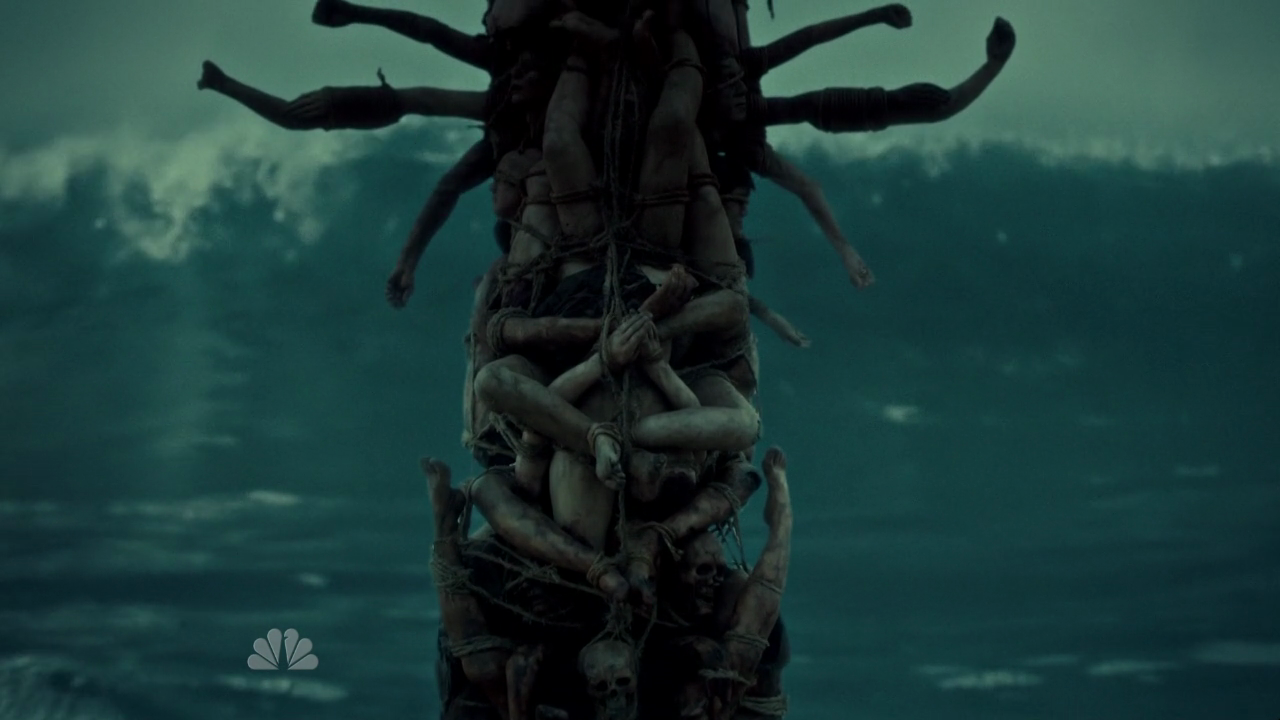
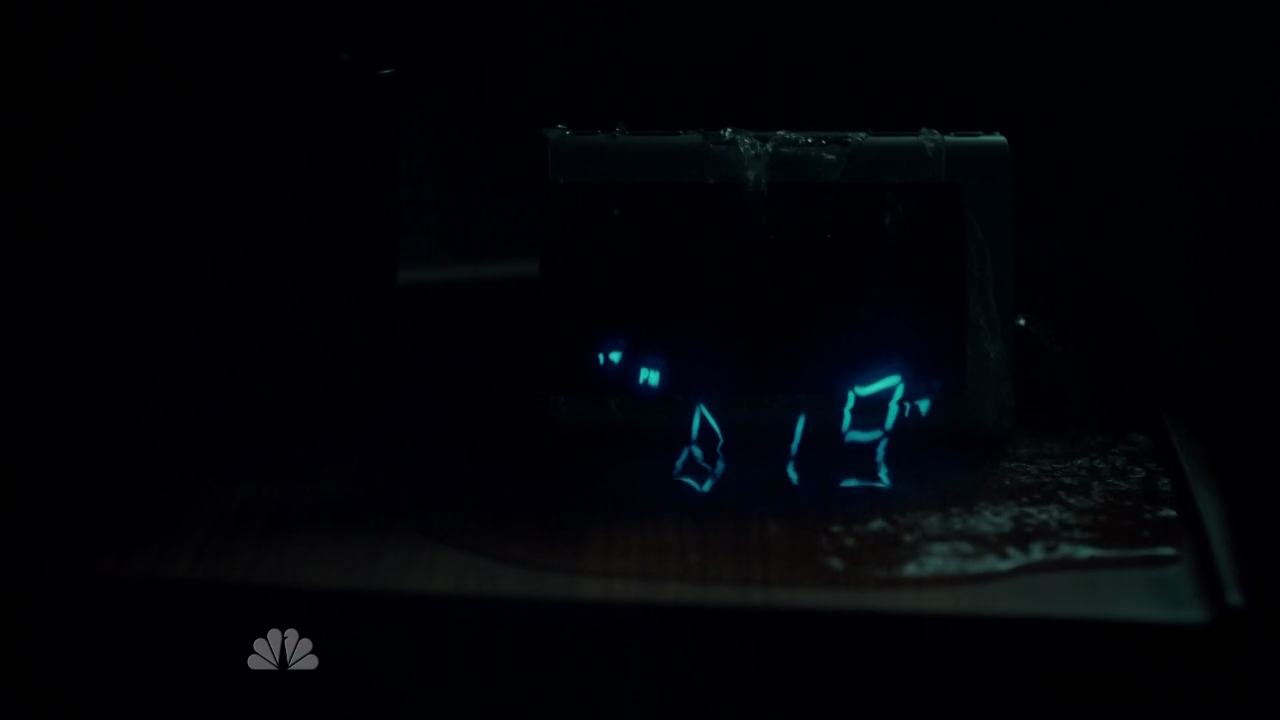
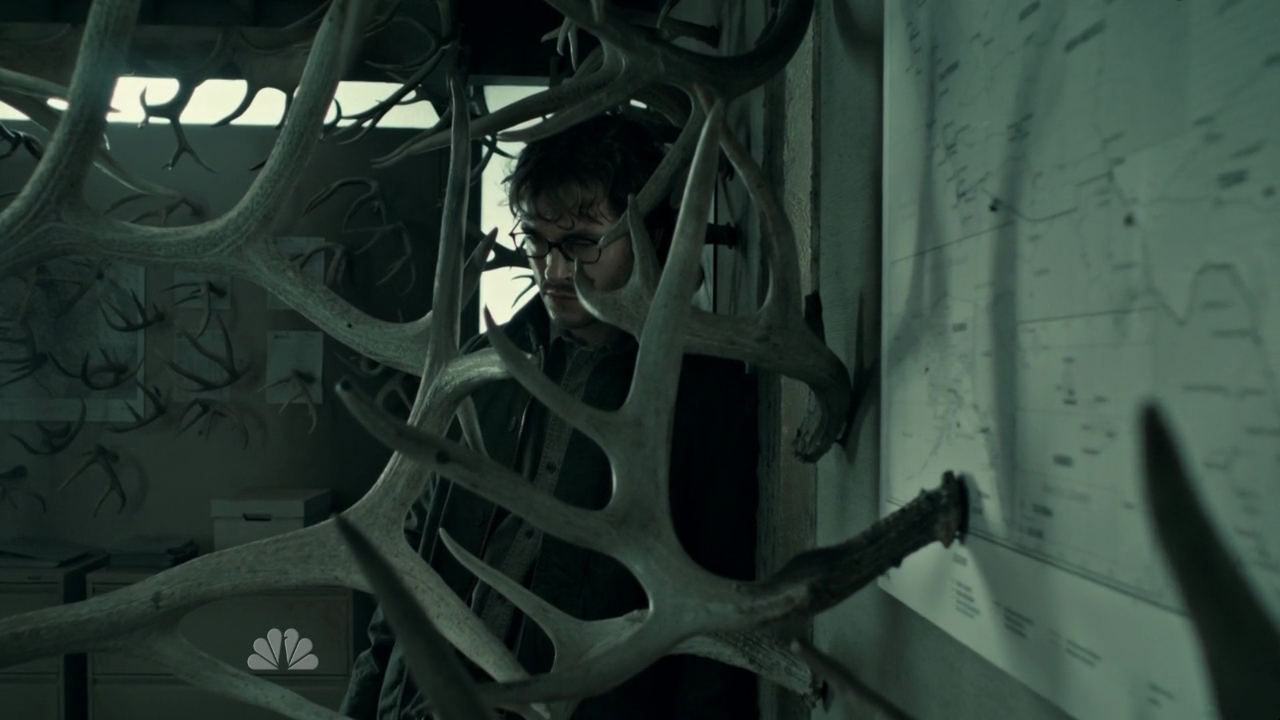
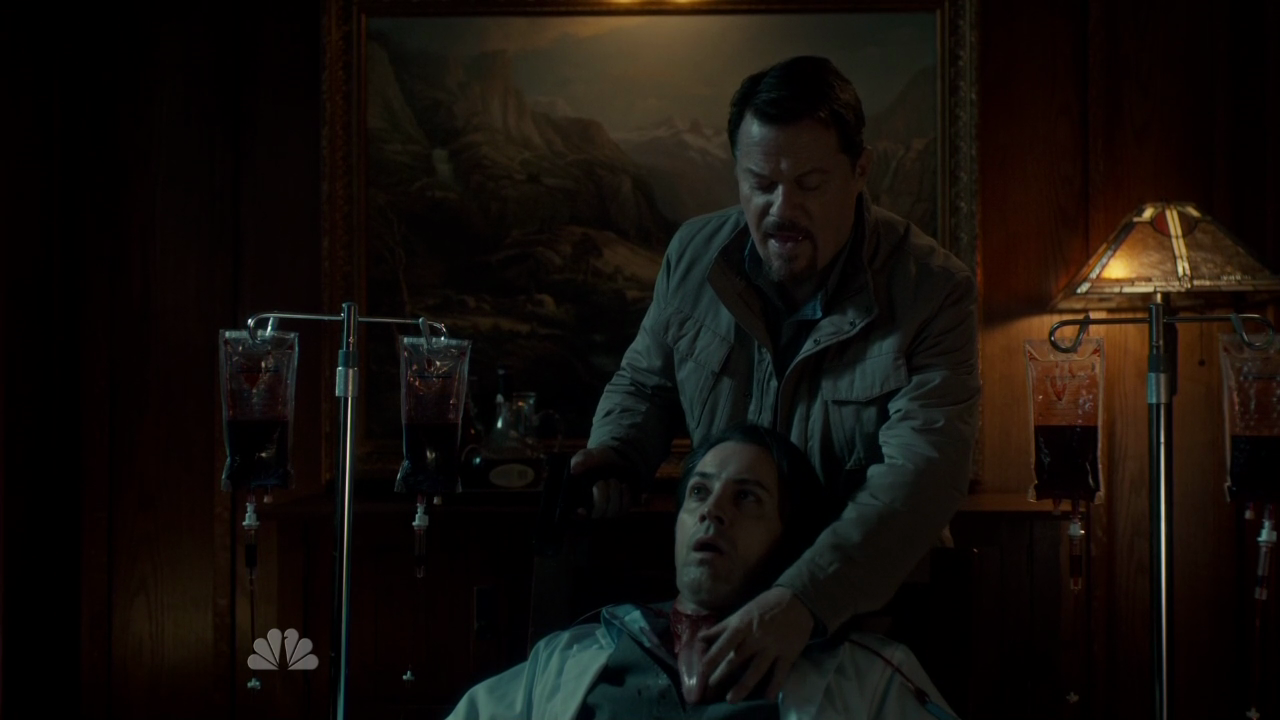
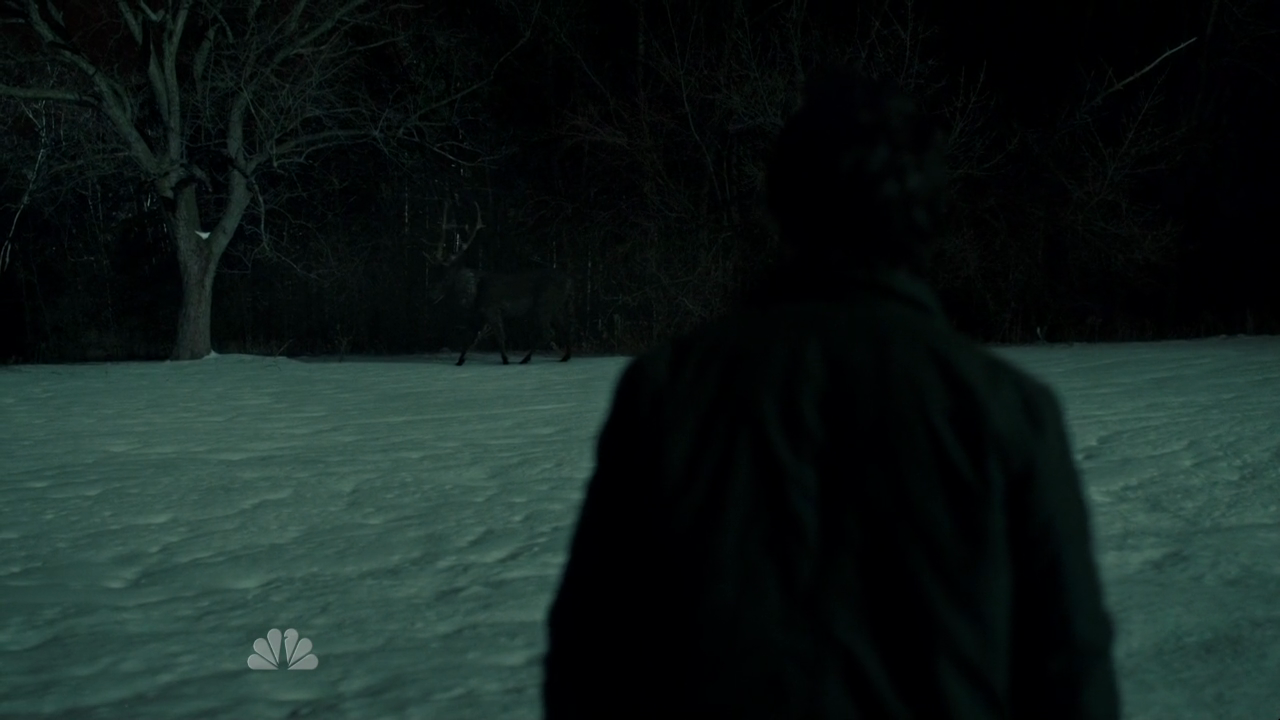
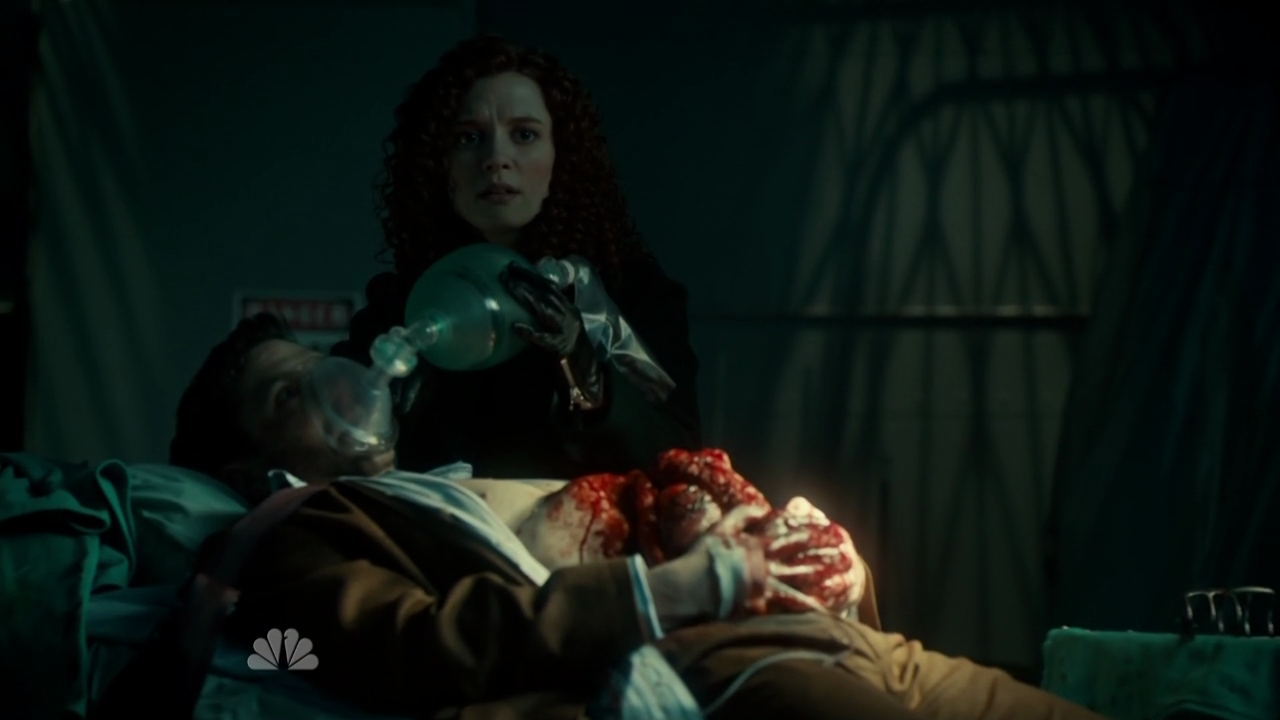
June 6, 2017 @ 2:33 pm
“Avid Fan” is surely from Red Dragon – it’s how Dolarhyde signs off in his letter to Lecter.
June 6, 2017 @ 9:20 pm
Hey Phil, when’s your review of Wonder Woman? Wondering minds wanna know!
June 6, 2017 @ 9:40 pm
According to twitter, after the 26th.
June 6, 2017 @ 9:51 pm
Yeah, I want to wait until the smoke has cleared and my review isn’t going to contribute to any climate of telling women they’re wrong for liking it.
June 7, 2017 @ 4:49 am
Ah well, that’s a hint then.